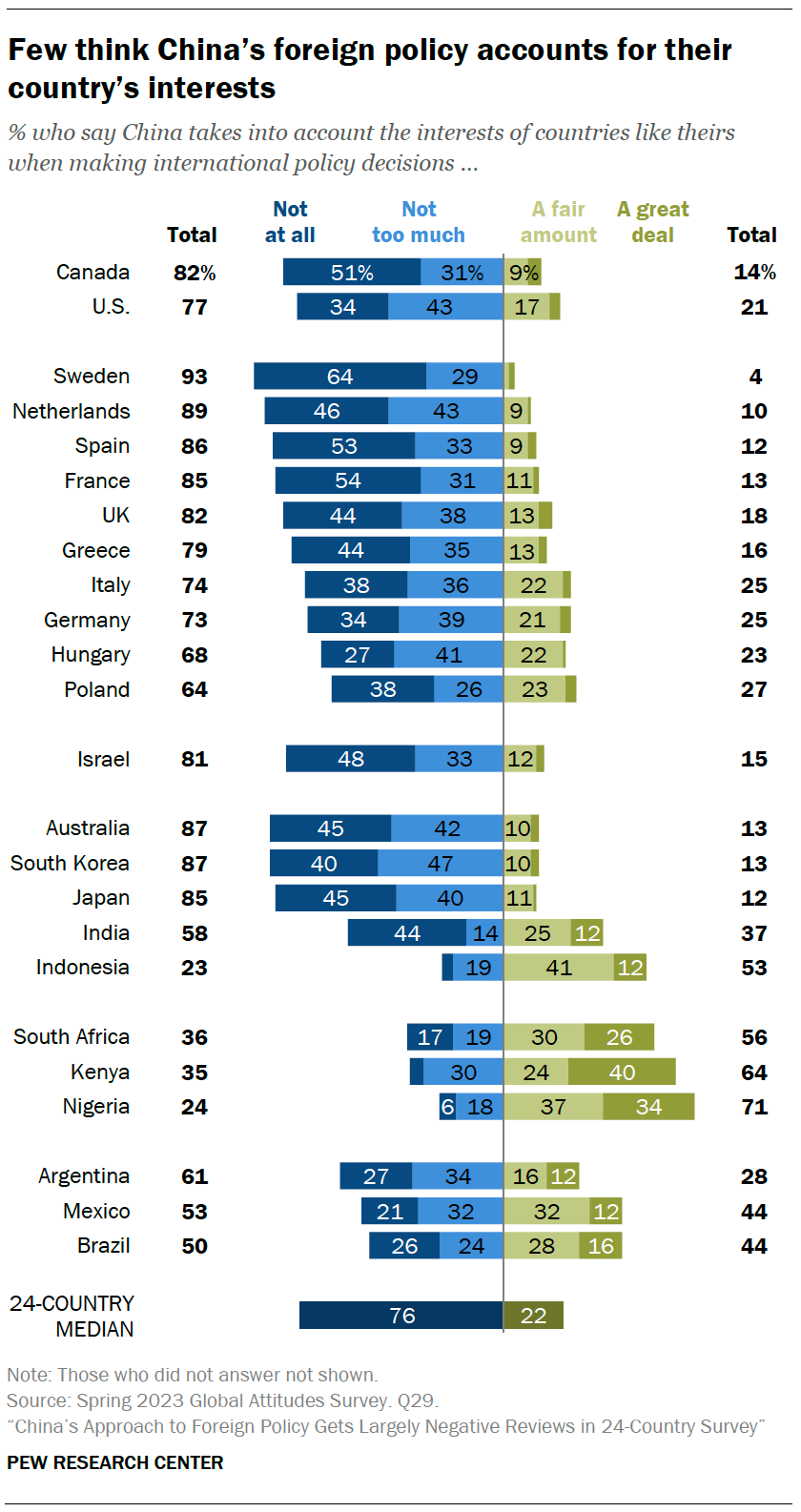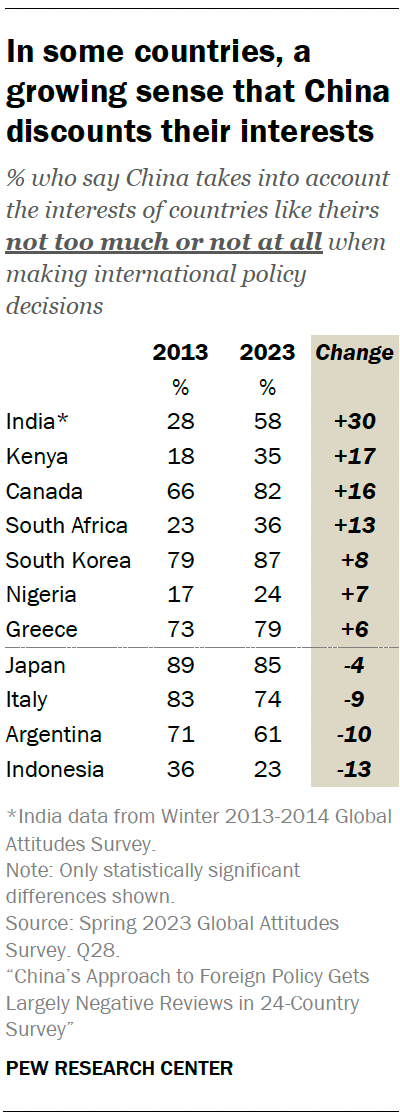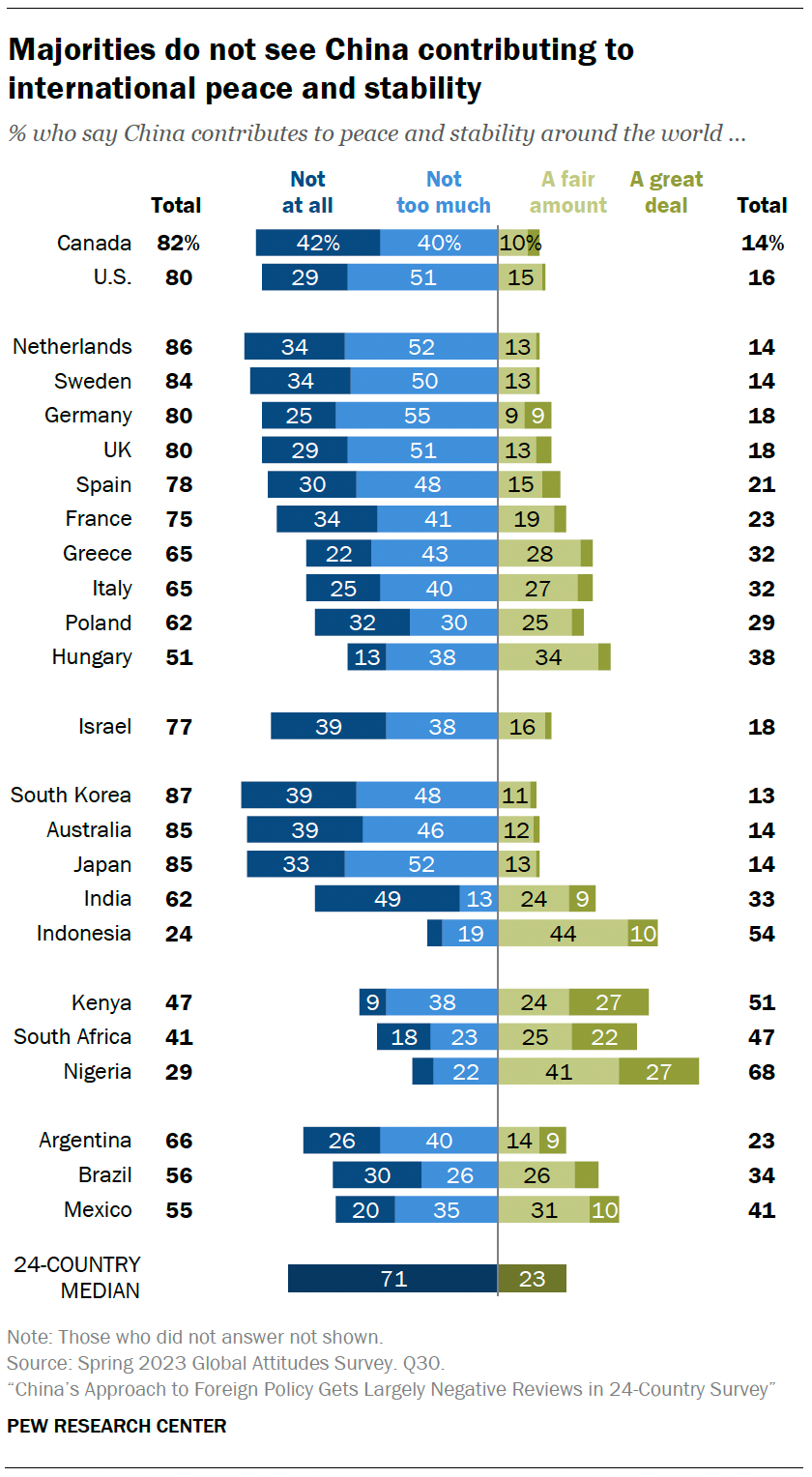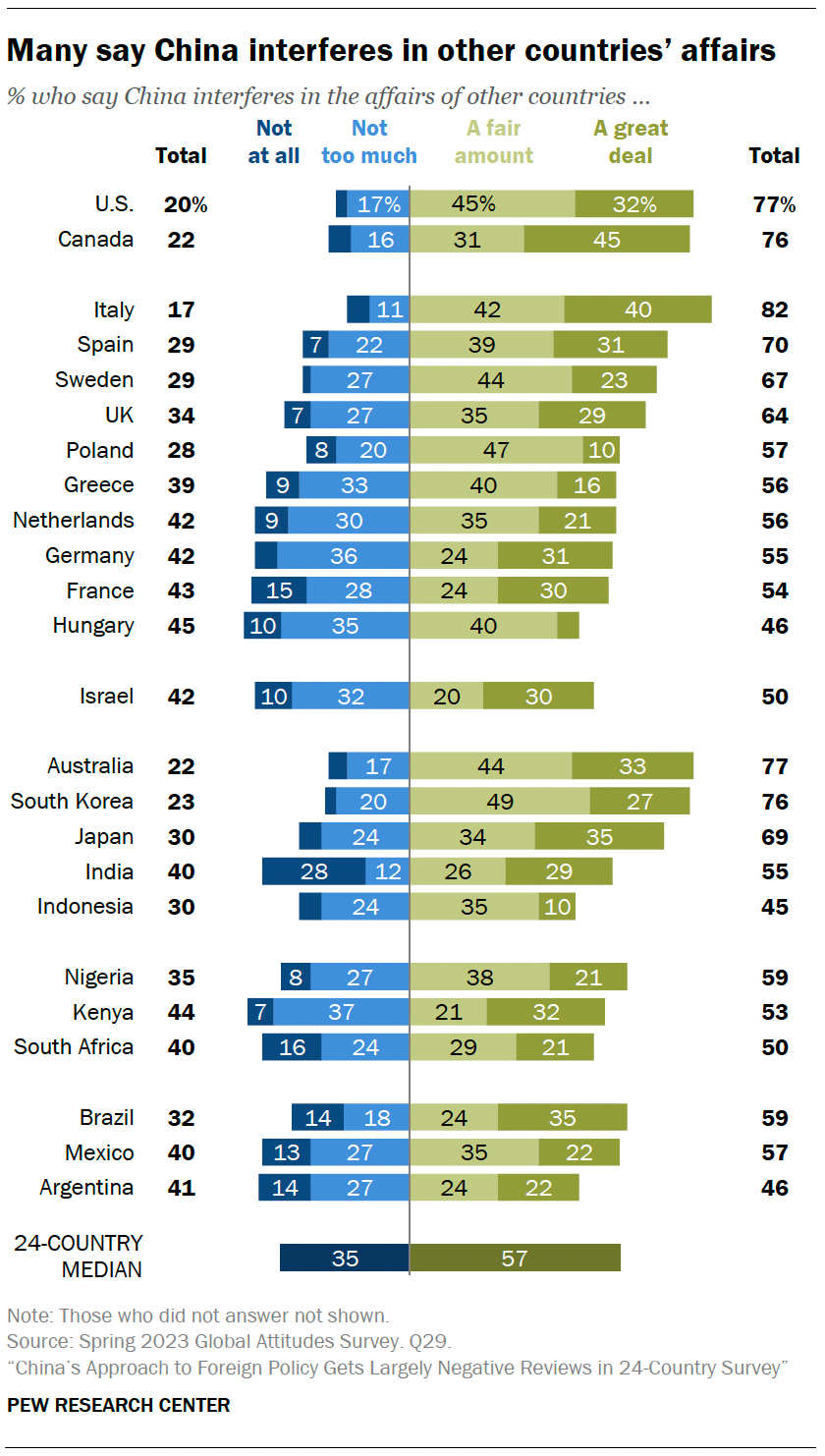
A median of 76% say China does not take into account the interests of countries like theirs when making international policy decisions. Only a median of 22% say China does account for such interests.
Countries in North America, Europe and the Asia-Pacific region are especially likely to say Chinese foreign policy does not heed their interests. In most of these countries, more than six-in-ten hold this view. The sense that China ignores their country’s interests is strongest in Sweden, where 93% say China does not account for their country’s interests. This includes 64% who say China does not at all consider Swedish interests when making foreign policy decisions.
Views in the three Latin American countries surveyed are more tempered. While half or more in all three say China does not account for their country’s interests, 44% in both Mexico and Brazil say that China does account for their interests.
The three sub-Saharan African countries surveyed stand out for having majorities who think China does consider their interests in its foreign policy decisions. At least a quarter in each say that China considers their country’s interests a great deal.
Those on the ideological left are more likely than their right-leaning counterparts to say China does not consider their national interests in Germany, Hungary and Spain. The opposite is true in Israel and the U.S., where those on the right are more likely to hold this view.

In 14 countries, more education is associated with a greater sense that China discounts the interests of other countries. For example, 66% of Hungarians with less education think China does not take into account the interests of countries like Hungary when making international policy decisions, compared with 79% of those with more education.
How views of China’s international behavior have changed over time
Over the last decade, people in some countries surveyed have become increasingly likely to think China does not account for their country’s interests. India has seen the largest change, with only 28% of Indians saying that China disregarded their country’s interests in 2013, compared with 58% in 2023 (+30 percentage points).
The sense that China does not account for their country’s interests has even increased in Kenya and South Africa, where most still say China does factor in their national interests.
However, people have become less likely to think Beijing disregards their country’s interests in Argentina, Indonesia, Italy and Japan since 2013.
Most say China does not contribute to world peace and stability

Across the countries surveyed, people largely do not think of China as contributing to global peace and stability. This view is widely held across North America and much of Europe, and, outside of these regions, around three-quarters or more say the same in Australia, Israel, Japan and South Korea.
Indonesia and the sub-Saharan African countries surveyed stand out for having more positive views of China’s contributions to the world order. About two-thirds in Nigeria and more than half in Indonesia say China contributes at least a fair amount to peace and stability around the world. Kenyans are also slightly more inclined than not to say that China does contribute to peace and stability.
Adults ages 40 and older in Australia, Germany, Mexico, the UK and the U.S. are more likely than younger adults to say China does not contribute to peace and stability around the world. They are also less likely to answer the question in some cases. In Argentina, Brazil, France, Hungary, Indonesia, Japan, South Korea and the U.S., more education is associated with greater skepticism about China’s contributions to international peace and stability.
Hungarians and Argentines on the left are more inclined to see China as not contributing to world stability than those on the ideological right. Conversely, conservatives in the U.S. are more likely to see China as not contributing to world stability than liberals are.
China seen as interventionist

Most in the countries surveyed – including nearly all of the middle-income countries – say China is prone to interfering in the affairs of other countries. A median of 57% hold this view, while a median of 35% say China does not interfere too much or at all. Two-thirds or more in Australia, Canada, Italy, Japan, South Korea, Spain, Sweden and the U.S. believe China meddles in other countries’ affairs.
Argentines and Hungarians stand out on this issue: Both are about as likely to say China does interfere in other countries’ affairs as they are to say China does not.
In North America, older adults are more likely than younger adults to see China as interventionist. The opposite holds true in South Africa and the Latin American countries surveyed: Younger adults in Argentina, Brazil, Mexico and South Africa are more likely than older adults to say China interferes at least a fair amount in the affairs of other countries. In 10 countries, those with more education are more inclined to say China interferes in the affairs of other countries compared with those with less education. They are also more likely to offer an opinion on the issue.
In Israel, Spain and the U.S., greater shares of those on the right than on the left say China interferes in the affairs of other countries. Conversely, right-leaning Hungarians are less likely than left-leaning Hungarians to see China as interventionist.




